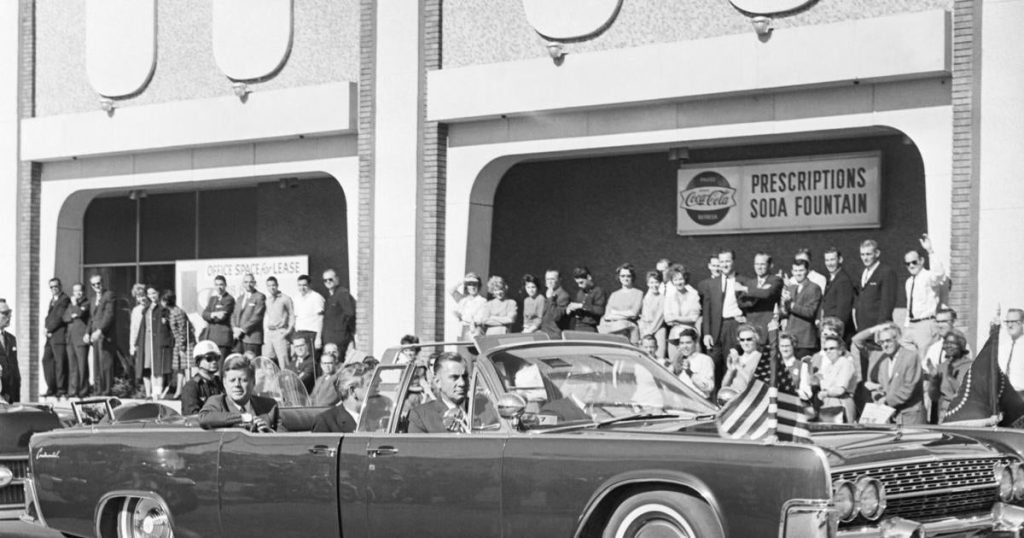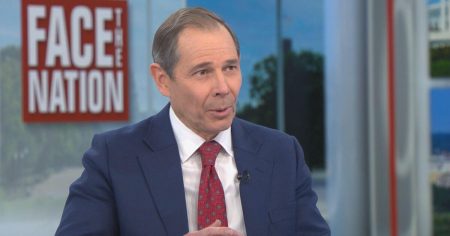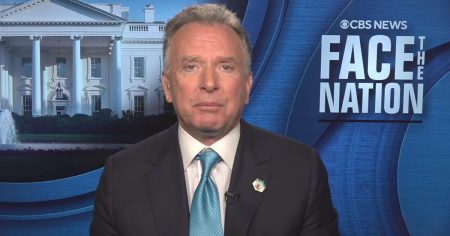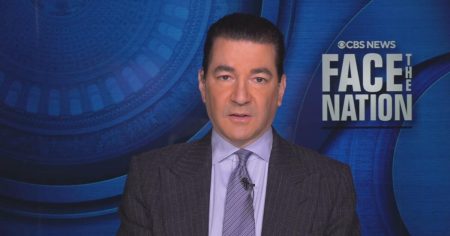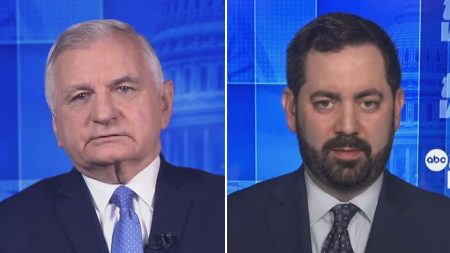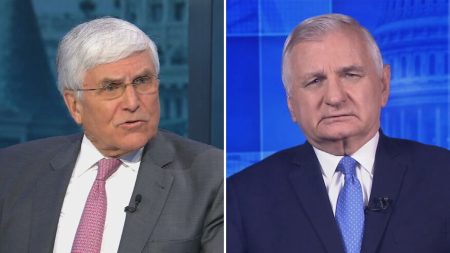New Revelations in the JFK Assassination: Trump’s Executive Order and the FBI’s Discovery
In a significant development in the ongoing quest for transparency regarding one of America’s most tragic events, the FBI has uncovered approximately 2,400 records related to the assassination of President John F. Kennedy. This discovery was made possible by an executive order signed by former President Donald Trump, which mandated the declassification of files connected to the assassinations of not only JFK but also Senator Robert F. Kennedy and civil rights leader Martin Luther King Jr. The newly found documents, which were previously unrecognized as part of the JFK assassination case file, have been inventoried and digitized by the FBI. The bureau has since notified the appropriate parties and is working diligently to transfer these records to the National Archives and Records Administration (NARA), where they will be included in the ongoing declassification process. While the contents of these records remain undisclosed, their discovery has sparked renewed interest and curiosity among historians, researchers, and the public alike.
Trump’s Executive Order and the Push for Transparency
President Trump’s executive order, signed during his first week in office, marked a bold step toward uncovering the truth behind three of the most infamous assassinations in American history. The order directed the Director of National Intelligence and the Attorney General to present a plan within 15 days for the "full and complete release of records" related to JFK’s assassination. This action reignited hopes that long-sealed documents might finally shed light on unanswered questions surrounding the events of November 22, 1963, when Kennedy was killed in Dallas, Texas. The order also extended to the assassinations of Robert F. Kennedy, who was gunned down in 1968 during his presidential campaign, and Martin Luther King Jr., whose 1968 assassination was a pivotal moment in the civil rights movement. By addressing all three cases, Trump’s order underscored the enduring public interest in these tragedies and the need for accountability and clarity.
The JFK Assassination Records Collection Act: A Legacy of Secrecy and Disclosure
The declassification of JFK-related records has been a topic of legal and public debate for decades, thanks in part to the President John F. Kennedy Assassination Records Collection Act of 1992. This landmark legislation required all federal agencies to identify and turn over any assassination-related materials to NARA, where they would be preserved and eventually made public. The law also established a 25-year timeline for the release of these records, with exceptions for certain sensitive materials that could compromise national security or reveal confidential sources. Over the years, NARA has made steady progress in releasing these documents, with more than 5 million pages of records now part of the collection. As of December 2022, over 97% of these records have been made available to the public, with the most recent batch released in August 2023.
Despite this progress, the existence of previously unrecognized records, as revealed by the FBI, highlights the complexity and scope of the JFK assassination files. Many questions remain unanswered, and the discovery of new documents has only fueled speculation about what other secrets might still be hidden. For researchers and historians, these records represent a treasure trove of potential insights into one of the most examined events in American history.
The Ongoing Declassification Process: Challenges and Controversies
The process of declassifying JFK assassination records has been far from smooth. While the 1992 act mandated the creation of a unified collection, federal agencies were allowed to withhold certain documents under specific exceptions. These exceptions have been a source of contention, with critics arguing that they have been abused to keep potentially embarrassing or incriminating information out of the public eye. The FBI’s recent discovery of 2,400 previously unrecognized records raises questions about the thoroughness of earlier searches and the extent to which agencies may have inadvertently or intentionally overlooked relevant materials.
Moreover, the role of the intelligence community in the declassification process has been a point of concern. Historically, agencies such as the CIA and FBI have been reluctant to release certain records, citing concerns about national security, foreign relations, or the privacy of individuals mentioned in the documents. As a result, many files remain partially or fully redacted, leaving gaps in the historical record. Trump’s executive order and the FBI’s latest discovery have renewed calls for greater transparency and accountability, but it remains to be seen how much of this new material will ultimately be made public.
The Broader Implications: Public Trust and Historical Accountability
The release of JFK assassination records is more than just a matter of historical curiosity; it speaks to fundamental principles of democracy and accountability. For generations, the American public has grappled with doubts and conspiracies surrounding Kennedy’s death, fueled in part by the perceived secrecy and obfuscation of government agencies. By shedding light on these events, the release of assassination-related records has the potential to restore trust and provide closure for those who have sought answers for so long.
At the same time, the declassification of these records serves as a reminder of the enduring legacy of the Kennedy, King, and Kennedy assassinations. Each of these events not only reshaped the course of American history but also left an indelible mark on the nation’s collective consciousness. As the FBI’s recent discovery demonstrates, there is still much to learn, and every new revelation brings us closer to understanding the complexities of these tragic events.
Conclusion: A Step Forward in the Pursuit of Truth
The FBI’s discovery of 2,400 previously unrecognized JFK assassination records and the ongoing declassification process represent a significant step forward in the pursuit of truth and transparency. While questions remain about the contents of these documents and the extent to which they will be made public, their discovery underscores the importance of perseverance in uncovering the past. For generations, the assassinations of JFK, RFK, and MLK have cast a shadow over American history, leaving behind a trail of unanswered questions and unresolved grief. As the nation continues to grapple with the legacies of these events, the release of these records offers a glimmer of hope that one day, the truth will be fully revealed.





